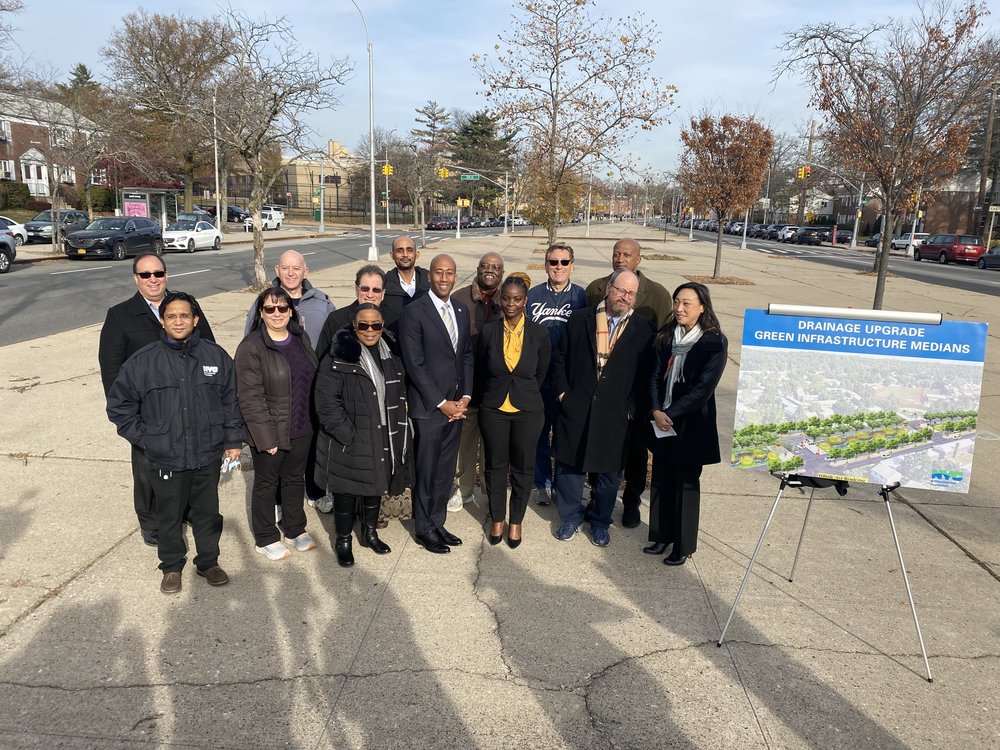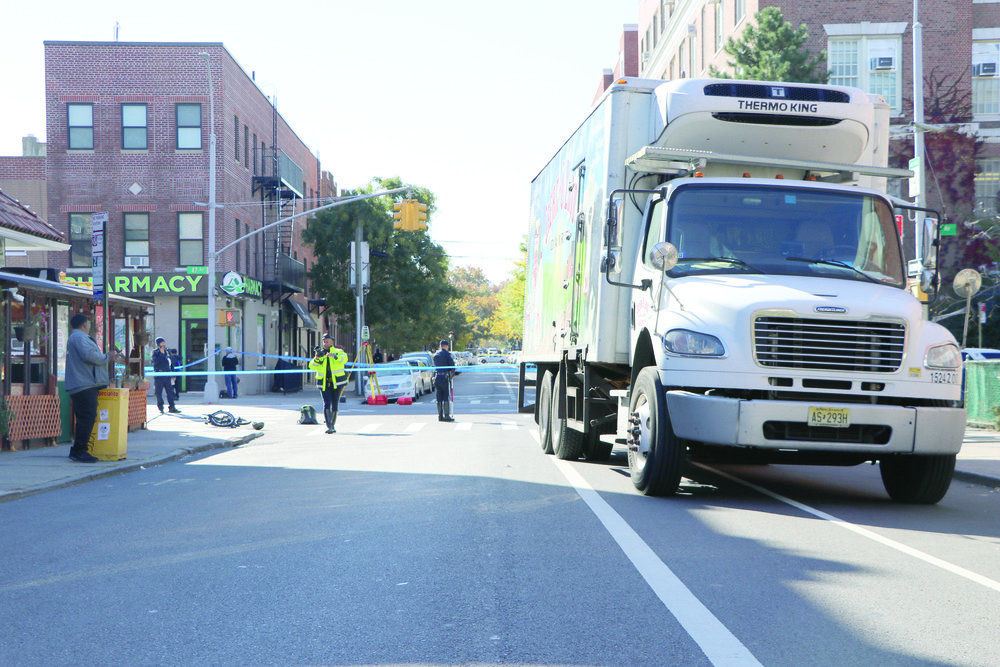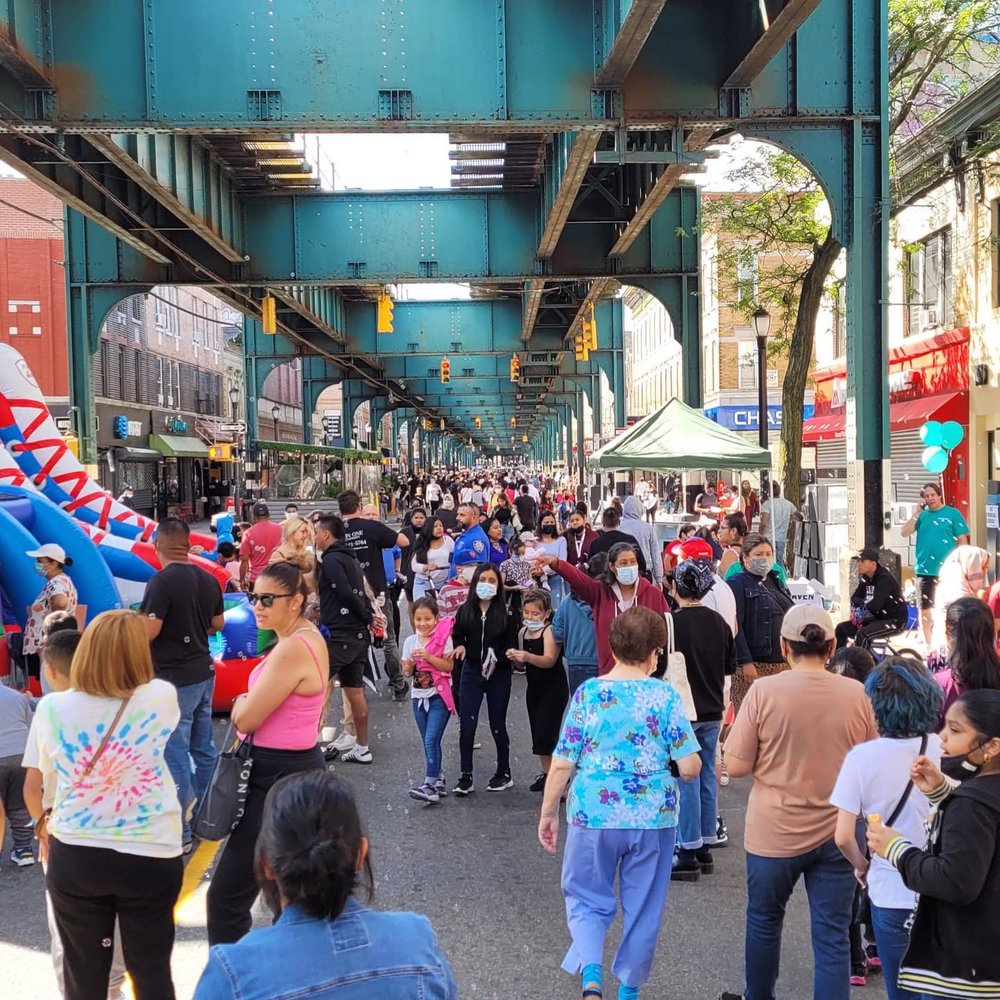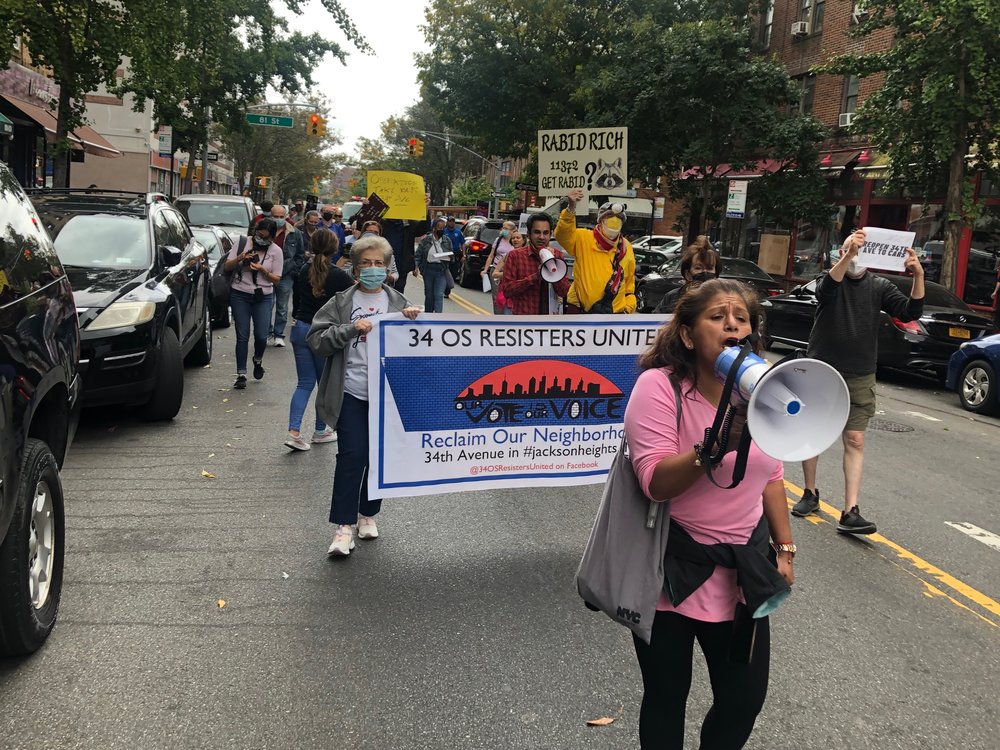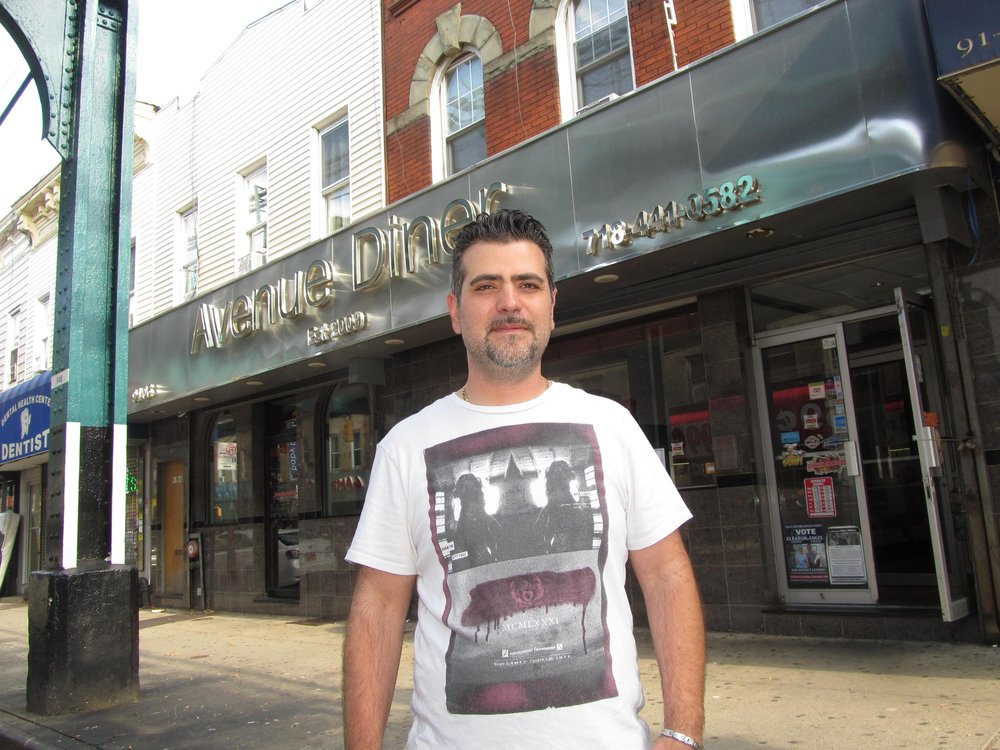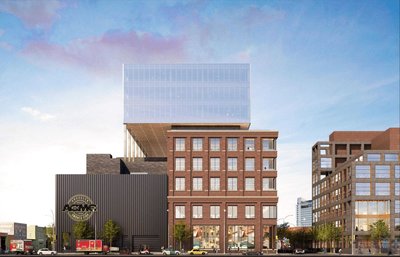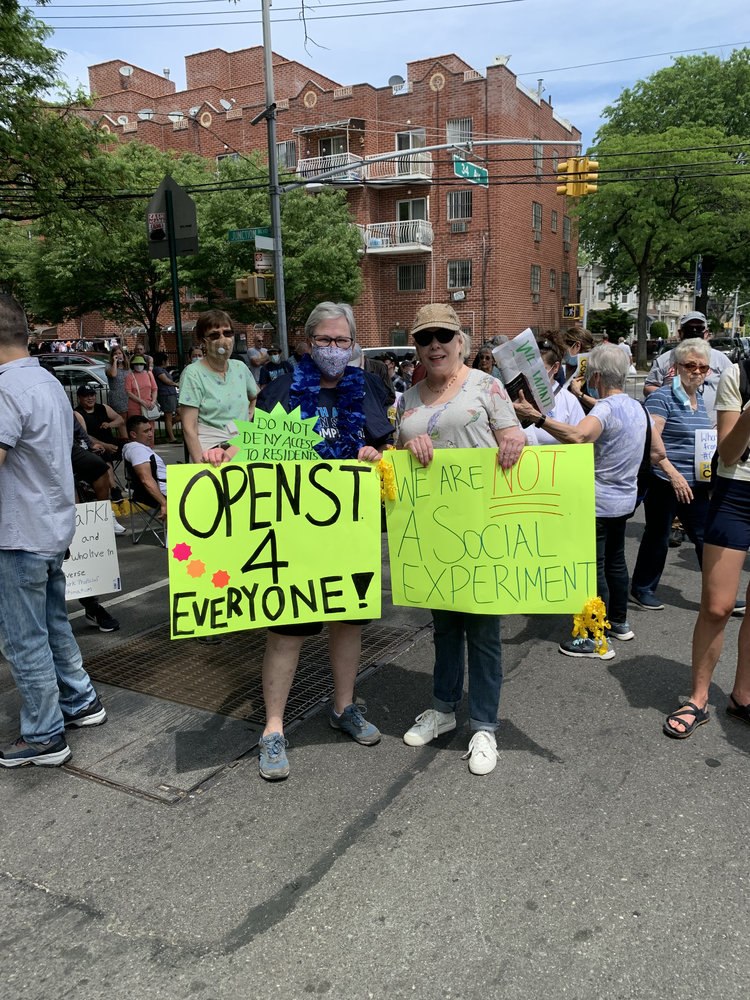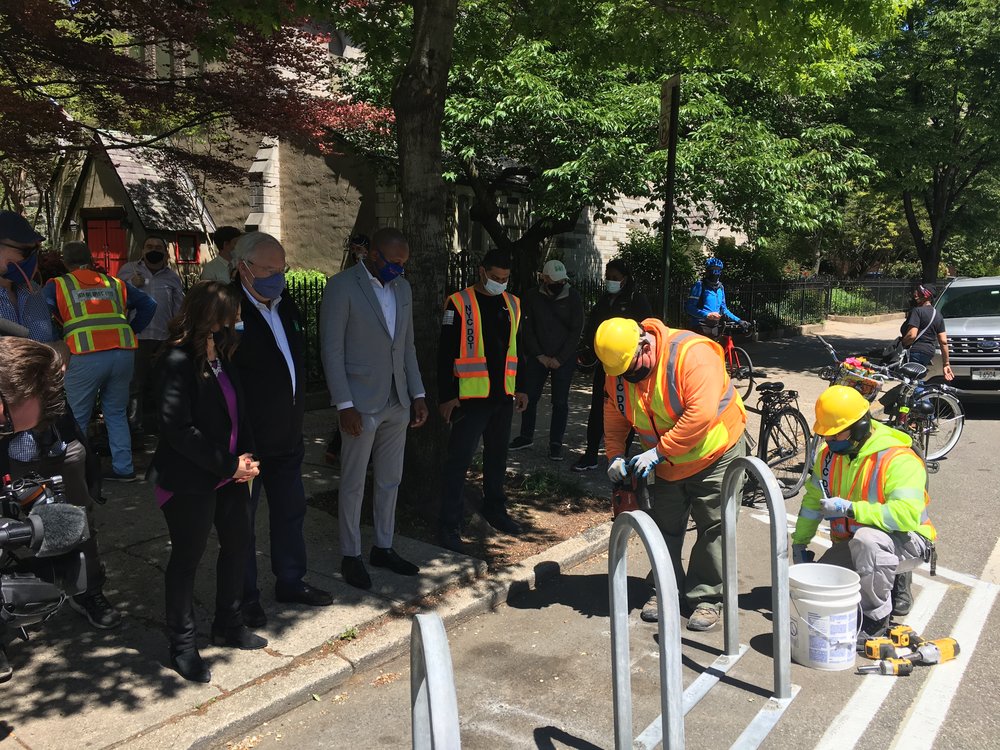Concrete-less Jungle: medians to get green makeover
The concrete slabs that divide Hillside Avenue in Queens Village will soon be replaced with several new green drainage spaces, better protecting the eastern Queens neighborhood from flooding.
Department of Environmental Protection (DEP) Commissioner Vincent Sapienza says the seven new greenspaces along Hillside Avenue will capture millions of gallons of stormwater, reducing local flooding and overflows of the sewer system.
In September, an overflowed sewer system was a main culprit behind the damage sustained during Hurricane Ida.
“Pavement is not our friend,” said Sapienza outside Martin Van Buren High School last week. “We want to try and get as many permeable surfaces in the city as we can and let the ground do its work and soak up stormwater rather than have it runoff and cause flooding.”
The project is anticipated to break ground in late 2022 and construction will continue for up to 12 months. The total cost of the project is approximately $2.5 million.
True to its name, the stretch of Hillside Avenue in the northern part of Queens Village is situated at the bottom of a hill, parallel to the Grand Central Parkway. DEP says a minimum of 5 million gallons will be captured in the new green spaces, which will also serve as habitat for pollinators and other threatened species in Jamaica Bay.
Councilman Barry Grodenchik described the current medians as “a sea of concrete.”
“The honey locust trees didn’t do well here” said Grodenchik. “This is going to change the environment here. It’s going to make the area literally cooler, because we won’t have the concrete soaking up all this heat.”
Incoming councilwoman Linda Lee vowed to see the project to its completion.
“Hopefully it can be a space the students and the community can utilize, because one thing that COVID has taught us is that outdoor spaces cannot be taken for granted,” said Lee. “I think this project will be a huge resource and benefit for the community.”
Kirby Lindell, who has lived in the neighborhood since 1958, is thrilled with the planned upgrades.
“I’ve been writing letters since before Barry was the councilman,” said Lindell. “In the summer, the only thing that survived was the weeds.”
Instead, Lindell and his neighbors will soon see the patches of concrete replaced with new trees and native plantings, with the addition of environmentally friendly green infrastructure
“I am so happy,” added Lindell. “I know how difficult it is even for the local council people to get projects like this done with all the bureaucratic stuff that goes with it. It’s going to be so important to people in our neighborhood.”




